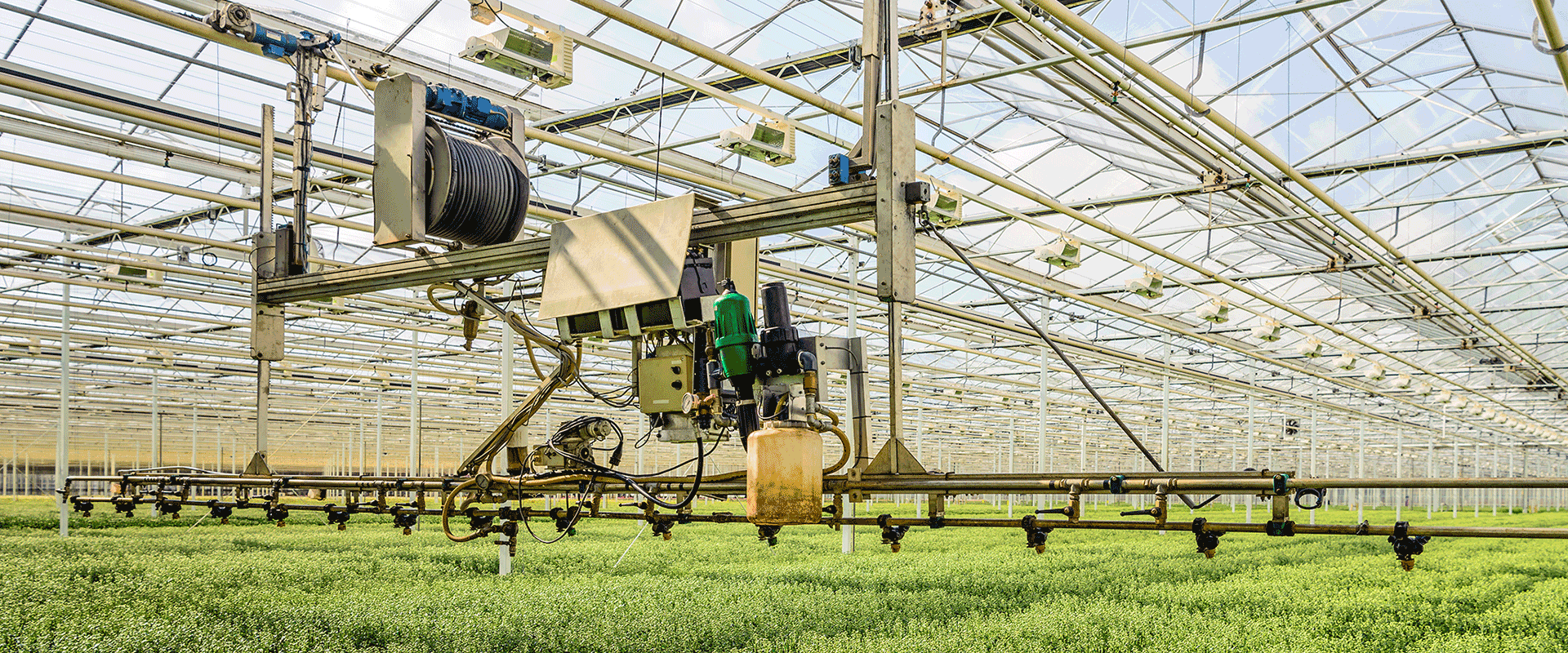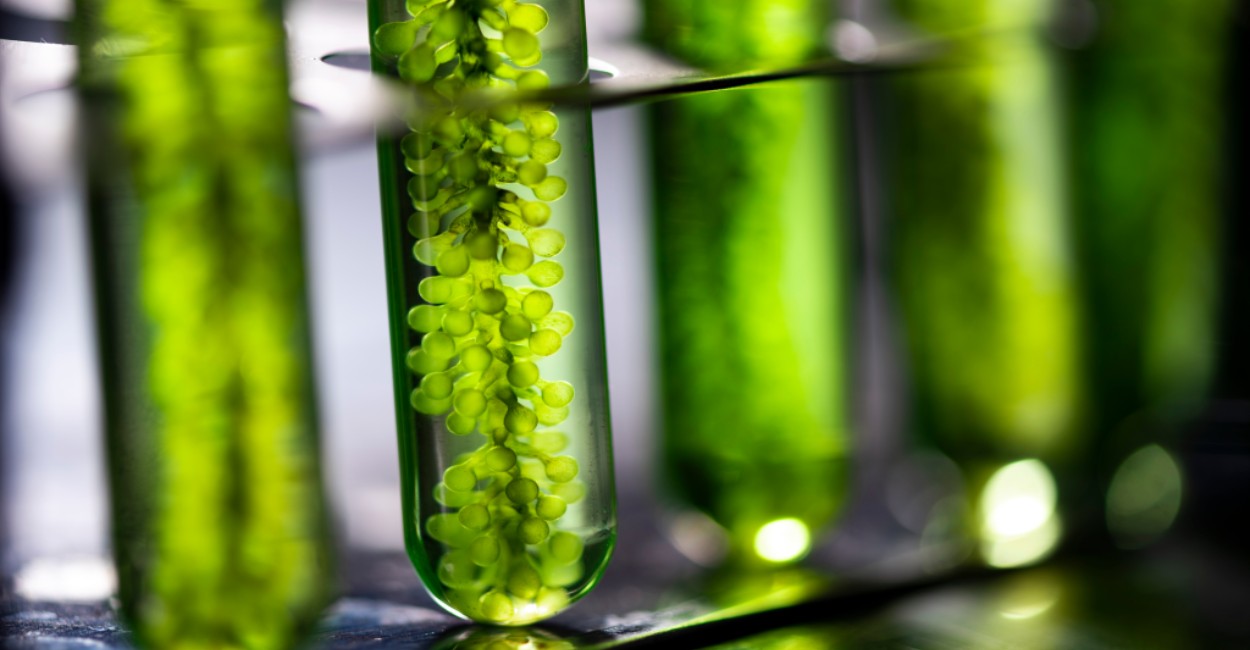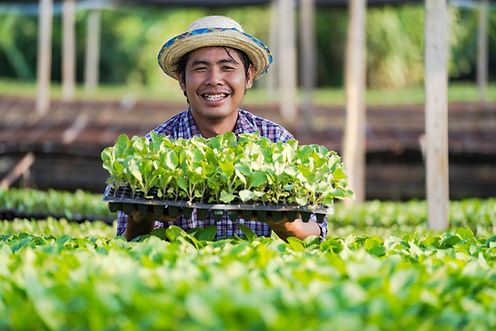Water is the lifeblood of agriculture. Every stage of farming, from seed germination to crop harvest, depends on a reliable water supply. However, water scarcity, pollution, and inefficient irrigation systems are increasingly threatening global food production. As the global population rises, farmers must find ways to produce more food with fewer resources, especially water. This is where innovations in water purification for agriculture come into play. By implementing advanced purification systems, farmers can not only conserve water but also improve the quality and safety of the water used in agricultural processes.
Pure Future LLC, a leader in sustainable agricultural solutions, has been at the forefront of providing state-of-the-art water purification systems designed to meet the challenges of modern farming. These technologies help farmers ensure that the water they use is free from harmful contaminants, conserve valuable resources, and promote sustainable agricultural practices.
This article will explore the key innovations in water purification technologies and how they benefit agriculture by improving water efficiency, enhancing crop productivity, and reducing environmental impact.
The Need for Water Purification in Agriculture
Water purification is essential in agriculture for several reasons. Farmers frequently rely on freshwater sources like rivers, lakes, and groundwater to irrigate crops, but these water supplies are becoming increasingly contaminated with pollutants, including pesticides, heavy metals, and pathogens. Irrigating crops with untreated or contaminated water can lead to reduced yields, poor crop quality, and even health risks for consumers.
Additionally, many regions are experiencing growing water scarcity due to climate change, drought, and overuse of water resources. In these areas, farmers must make the most of every drop of water by using purified and efficient irrigation systems.
Innovations in Water Purification Technologies for Agriculture
Over the past decade, significant technological advancements have been made in water purification systems. These innovations are enabling farmers to use water more efficiently, reduce waste, and minimize the environmental impact of agricultural practices.
- Reverse Osmosis (RO)
Reverse osmosis is a widely used water purification technology that works by forcing water through a semipermeable membrane to remove impurities. It is highly effective in removing dissolved salts, chemicals, heavy metals, and pathogens from water. RO systems are especially beneficial for agriculture in regions where groundwater or surface water is saline or contaminated with industrial pollutants.
In agriculture, reverse osmosis can provide clean, purified water for irrigation and livestock. Additionally, it helps improve soil health by preventing the buildup of salts and other harmful chemicals that can accumulate when using untreated water. Saline soils can hinder plant growth and reduce yields, so using RO-purified water can lead to healthier plants and higher agricultural productivity.
- Ultrafiltration (UF)
Ultrafiltration is another advanced water purification technique that uses membranes to remove particles, bacteria, and viruses from water. Unlike reverse osmosis, ultrafiltration operates at lower pressures, making it more energy-efficient and cost-effective for large-scale agricultural use. UF systems can be used to treat water from a variety of sources, including surface water, groundwater, and even wastewater, making it a versatile option for farmers.
One of the key advantages of ultrafiltration is that it removes pathogens and other harmful microorganisms without the need for chemical disinfectants. This is particularly important for organic and sustainable farming practices, where the use of chemicals is minimized. By providing clean, pathogen-free water, ultrafiltration helps reduce the risk of waterborne diseases that can affect both crops and livestock.
- Desalination Technologies
Desalination technologies have been gaining traction in agriculture, especially in arid regions where freshwater is scarce, and seawater is abundant. Desalination works by removing salt and other impurities from seawater or brackish water, making it suitable for irrigation. While desalination has traditionally been energy-intensive and expensive, recent innovations have made the process more efficient and cost-effective.
In particular, solar-powered desalination systems are emerging as a promising solution for agricultural regions with abundant sunlight. These systems use solar energy to power the desalination process, reducing reliance on fossil fuels and lowering operating costs. Solar desalination not only provides a sustainable source of clean water for irrigation but also reduces the environmental footprint of agricultural operations.
By incorporating desalinated water into their irrigation systems, farmers can access a new source of clean water, reducing their reliance on overstressed freshwater resources and enhancing the resilience of their farms in the face of climate change.
- Advanced Oxidation Processes (AOPs)
Advanced oxidation processes (AOPs) are cutting-edge water treatment technologies that use powerful oxidizing agents to break down organic pollutants, pesticides, and other contaminants in water. AOPs typically involve the generation of hydroxyl radicals, which are highly reactive and can rapidly degrade harmful substances in water.
In agriculture, AOPs are used to purify irrigation water contaminated with agrochemicals, such as pesticides and herbicides, which can have detrimental effects on both crops and soil health. By using AOP-treated water, farmers can prevent the accumulation of toxic chemicals in their fields, leading to healthier soils and crops.
AOPs are also effective in disinfecting water, killing bacteria, viruses, and other pathogens without the need for harmful chemical disinfectants like chlorine. This makes AOPs an environmentally friendly option for purifying water in organic and sustainable farming systems.
- Electrocoagulation
Electrocoagulation is an innovative water treatment technology that uses electrical currents to remove suspended particles, heavy metals, and organic contaminants from water. It works by applying a small electric charge to the water, causing contaminants to clump together and settle out of the water. This process is highly effective in treating water with high levels of turbidity, oil, and grease, making it ideal for use in agricultural runoff and wastewater treatment.
In agriculture, electrocoagulation can be used to treat and recycle wastewater from farming operations, reducing water consumption and minimizing the environmental impact of agricultural runoff. By reusing treated wastewater for irrigation, farmers can conserve freshwater resources and reduce their dependence on external water supplies.
Moreover, electrocoagulation systems are energy-efficient and require minimal maintenance, making them a cost-effective solution for small and large-scale farming operations alike.
- Nanotechnology in Water Purification
Nanotechnology is at the forefront of innovations in water purification, offering highly efficient and cost-effective methods for removing contaminants from water. Nanofiltration membranes are capable of removing extremely small particles, including dissolved salts, heavy metals, and pathogens, making them ideal for purifying water in agricultural settings.
Nanotechnology also enables the development of nanomaterials with unique properties, such as antimicrobial coatings, which can prevent the growth of harmful microorganisms on water treatment equipment. This reduces the need for chemical disinfectants and extends the lifespan of water purification systems, making them more sustainable and cost-effective in the long run.
In agriculture, nanotechnology-based water purification systems can be used to treat both irrigation water and wastewater, providing farmers with clean, safe water for their crops and reducing the risk of contamination.
The Role of Water Recycling in Agriculture
Water recycling is an essential component of sustainable agriculture. By treating and reusing wastewater from farming operations, farmers can reduce their reliance on freshwater resources, conserve water, and minimize the environmental impact of their operations.
Innovative water purification technologies, such as those mentioned above, make it possible to treat wastewater to a high standard, allowing it to be safely reused for irrigation and other agricultural processes. This not only reduces water consumption but also helps prevent the pollution of local water bodies by agricultural runoff.
Pure Future LLC’s Approach to Water Purification
Pure Future LLC is at the forefront of providing innovative water purification systems for agriculture. Their advanced technologies are designed to meet the unique challenges faced by farmers, from water scarcity to contamination. By offering water purification systems that incorporate cutting-edge techniques such as reverse osmosis, ultrafiltration, and advanced oxidation processes, Pure Future LLC is helping farmers access clean, purified water for their crops and livestock.
These technologies not only improve water quality but also promote sustainable farming practices by reducing the need for chemical treatments, conserving water, and minimizing the environmental impact of agricultural operations. By investing in water purification innovations, Pure Future LLC is helping farmers ensure long-term agricultural productivity and environmental sustainability.
Conclusion
Water purification is a critical component of sustainable agriculture, helping farmers overcome challenges related to water scarcity, contamination, and inefficient irrigation. Innovations in water purification technologies, such as reverse osmosis, ultrafiltration, desalination, and nanotechnology, are enabling farmers to access clean, safe water for their crops and livestock while conserving valuable resources and reducing environmental impact.
As climate change continues to exacerbate water shortages and pollution, the adoption of advanced water purification systems will become increasingly important for ensuring global food security. Companies like Pure Future LLC are leading the way in providing cutting-edge solutions that help farmers thrive in a changing world while promoting sustainable and environmentally friendly farming practices.





